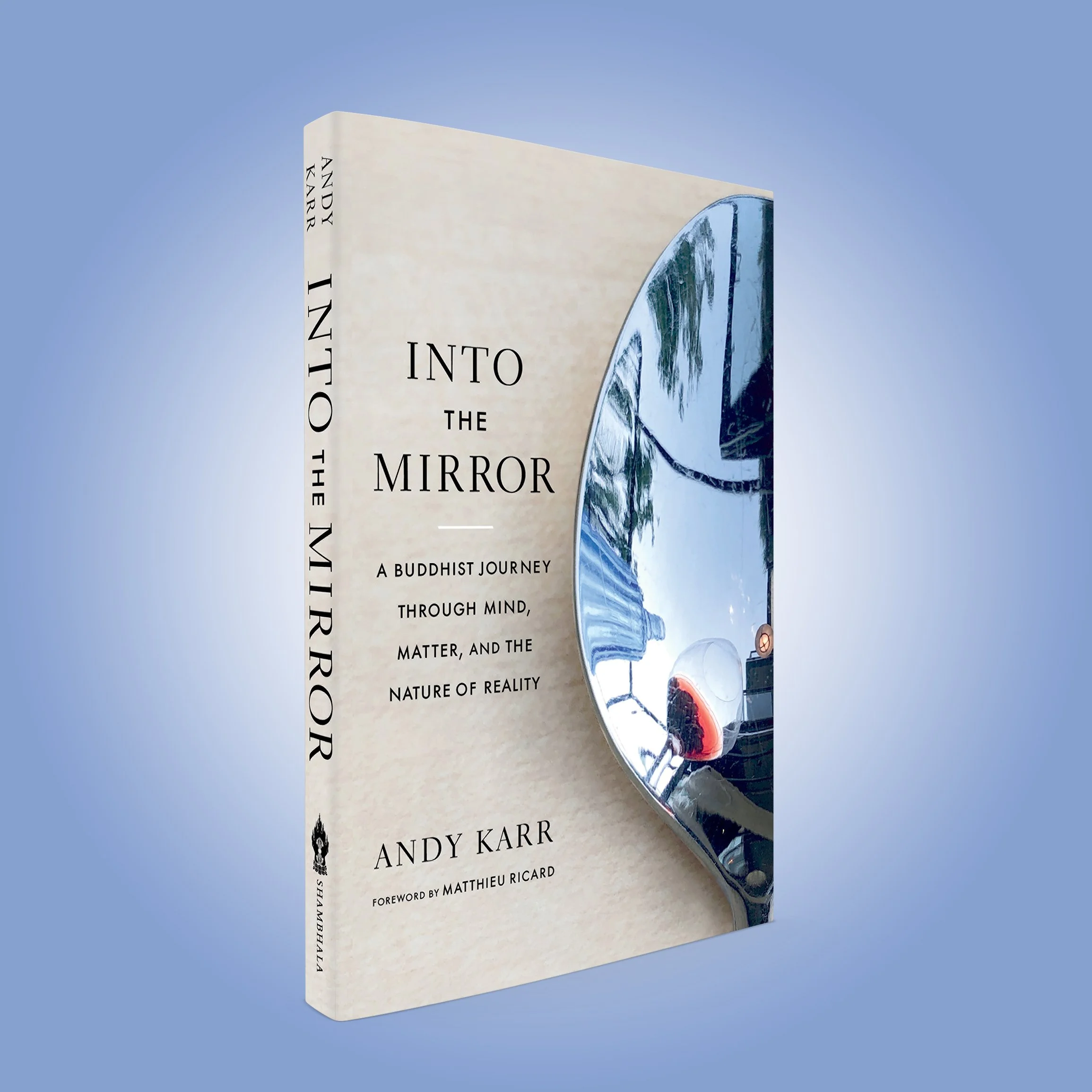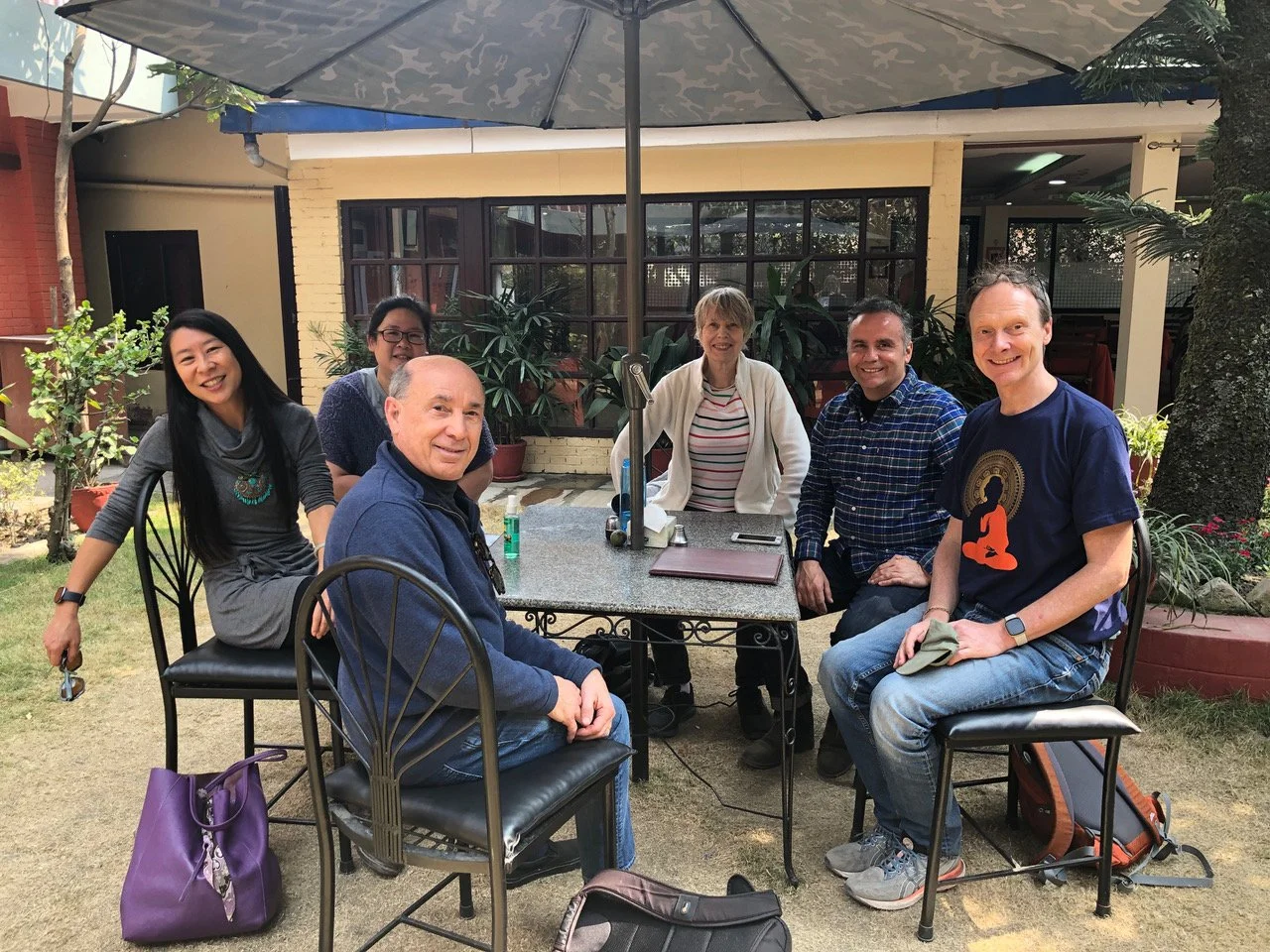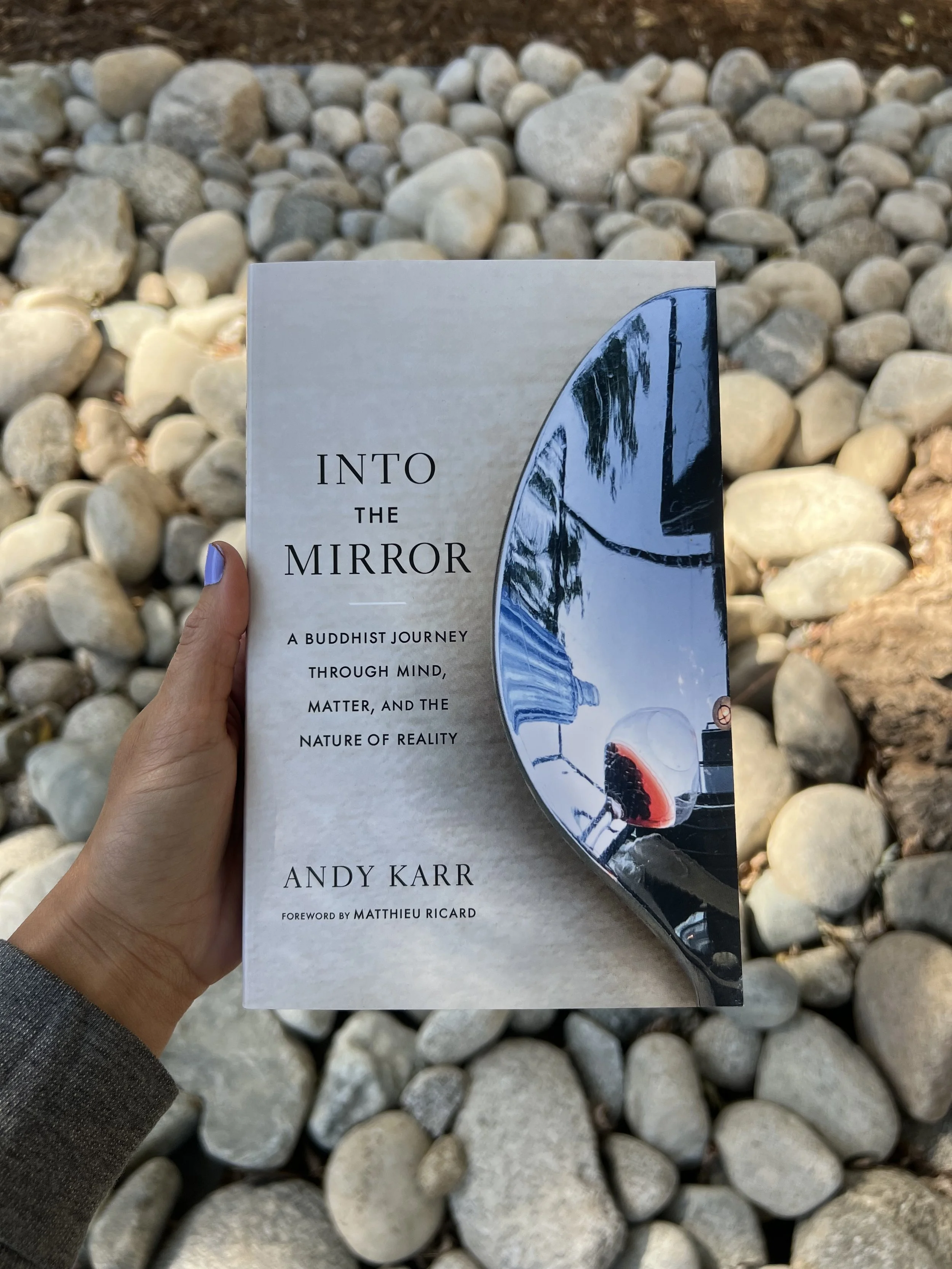Meet Andy Karr, Author of Into the Mirror
Interviewed by Diane Cyrr
Back in the Seventies, teacher/author Andy Karr wasn’t the only college kid watching “too many samurai movies.” Most likely, though, he was one of the few to segue from Sword of Vengeance to a lifelong exploration of the nature of mind. Beginning in 1972 with a stint at the San Francisco Zen Center, Karr studied with a Who’s Who of Buddhist masters, particularly Chögyam Trungpa Rinpoche. He founded a dharma center in Paris, taught and studied worldwide, pursued contemplative photography, and wrote the cult-classic Contemplating Reality, a Buddhist investigation into the nature of the mind. With his new book, Into the Mirror, Karr brings his insights to the 21st century, showing how Buddhist principles can help liberate our minds from the stickiness of materialism and delusion.
Aside from Samurai movies, you were also an early fan of Zen In The Art of Archery. How did these spark your interest in Buddhism?
They both portrayed an almost mythic, heroic kind of mastery. They were about superheroes, and I wanted to become the Zen master. For some reason that really appealed to me.
I started practicing at the Zen Center in San Francisco, and when the person I wanted to study with-- Shunryu Suzuki Roshi—passed away, I met Chögyam Trungpa Rinpoche, who had been spending a lot of time in the Bay area. Trungpa Rinpoche was extraordinary: Someone who was very special, with a lot of magnetism and wisdom and warmth.
Clearly, though, your studies weren’t geared to superhero trade secrets.
I think the thing that has continually compelled me has been this quest for insight. Particularly in the nature of my mind and experience.
Why did you want to write this book? What does it add to the Buddhist teachings?
My deep concern when I started on this book many years ago was how Buddhism was engaging modernity. We as modern people bring to Buddhism a world view that has vast networks of conceptuality, and that conceptuality adds a layer of difficulty in getting to insight. In other words, we’re in a world where science is considered the only real source of knowledge. Even people who are anti-science check the weather report on their smart phones. So science is pervasive, as well as materialism, which has been a strong cultural thrust for a century now. It’s materialism in the philosophical sense, it’s behaviorism in the psychological sense, and it’s consumerism in the broad cultural sense. All these different approaches take the material world to be the source of happiness and sorrow rather than the mind. And these approaches diminish the importance of the mind and the need for working with it directly.
So that’s one of the challenges that modern people have in getting into Buddhism. The other challenge is how Buddhists can talk intelligently to people who aren’t Buddhists--to enter the dialogue in a way that isn’t conditioned by fourth-century Buddhist lingo.
It sounds like the information age obscures thinking instead of clarifying it.
It does, because all the information seems to be “real”--not in the sense of “correct,” but real in the sense of addressing something fixed and outside of us. So we hear about atoms and molecules and quarks and strings and forces and all of those scientific models, and because they have tremendous predictive power, we think that the models are part of the furniture of reality. They’re not. They’re mental models, ways we think about reality.
In your book, you talk about dropping “thinking,” about recognizing the difference between conception and perception. What does this mean?
I think a lot of people expect that, when they get involved with meditation or Buddhism, it’s about getting rid of disturbing thoughts. That expectation is one that will inevitably be foiled by actually practicing it. You can’t get rid of your own mind. The thought “I need to get rid of my thoughts” is another thought. So when we say “drop thoughts,” it’s more about getting some perspective on them rather than getting rid of them. And that perspective is the insight that isn’t involved in discursiveness or distractedness. We learn we have the capability of knowing that’s beyond our normal conceptualizing. We shift allegiance from discursive “knowing” to what we might call wisdom.
And wisdom is recognizing what is true, what is real.
Yeah, and part of reality is all that thinking, and all the emotionality and all the things that arise in our minds. It’s when those things seem to us to be solid and external that we have a mistaken perception, from the Buddhist perspective.
How does one apply this Buddhist perspective to what we consider today’s real-world problems, like climate change and homelessness?
The point of the exercise is to be able to see things clearly. Our normal way of seeing is mixing a lot of mental imagery and discursiveness with what is actually in front of us. Instead of just engaging with our feelings and projections, we gain a more direct sense that there are actual people that are actually suffering. It becomes a vivid reality, and compassion arises naturally out of that, rather than out of the idea that there’s some dutiful way you’re supposed to be.
Why did you title your book Into the Mirror?
I had been working on this book for many years and came up with a lot of crappy titles, and on the day the publisher’s title committee was going to meet, I woke up and “into the mirror” popped into my head. And then it was another year before I realized how well the title fits. To me, the book is about shifting away from chasing after reflections and running away from reflections. It’s about becoming the mirror rather than reacting to the reflections.
What does it mean to become the mirror?
The mind reflects realities of all sorts, from perceptions to concepts to emotions. We have a thought of something that we might want to buy, or acquire, or achieve. That’s a mental image--like a reflection in a mirror. And we tend to get mesmerized by these reflections and either run from them or run toward them, ignoring that these are just appearances in the mirror. And so going into the mirror is like settling into the mind itself—it’s about acknowledging these reflections rather than being continually dragged about by them.
And in that way liberating yourself from them.
Exactly. That is liberation. And it took me about a year to see that, which testifies to my slowness!
What’s your greatest challenge in your own practice?
Laziness. I like to practice and I like to do formal meditation, and then I get up and go about doing things without much effort to keep clicking into that insight. When things get interesting in a positive or negative way, it’s a useful reminder to wake up and address it, but I feel like I could be of more benefit if I made a little more effort at coming back to that insight. Even in this conversation right now, if I take that moment to reflect, maybe I could be more helpful and more articulate.
What will your next book address?
I don’t think there will be another. I started thinking about this book maybe ten years ago, and started writing it seriously about five years ago. Unless there’s some big shift and I have something else that is worth sharing, I don’t feel like I need to write anything else. The last thing I want to do I is keep writing the same book.
When you teach, what do you most want your students to grasp and learn?
I’m interested in communicating how much is going on in your mind that you’re not recognizing. There’s a famous line from a great Tibetan saint, Milarepa, which says the mind has more projections than there are dust motes in the sun. Recognizing that is very central to the path, and creates liberation from the compulsion that we normally have.


